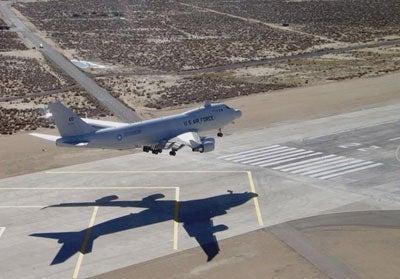Federal Flight Deck Officer Program: A Critical Safety Net for Aviation Security
David Inserra /
The Federal Flight Deck Officer (FFDO) program, for less than $15 a flight, certifies firearms-trained volunteer pilots as a last line of defense against would-be hijackers and terrorists. On March 23, Heritage’s James Carafano hosted an event with a panel of pilots and Representative Chip Cravaack (R–MN) to discuss this important program.
Unfortunately, the Department of Homeland Security does not think that the FFDO program is so important. It is slashing the program’s budget in half, likely setting it up for complete deletion in the near future. The slashing of this program is part of a disturbing trend in our government to centralize homeland security efforts while minimizing cost-effective security efforts by local government and individuals, such as the FFDO program, other non-federal aviation security efforts, and border security programs.
Carafano wisely noted, “We as a nation, the people that live here, have a part to play in protecting ourselves. And it’s finding that balance that advances our freedoms, preserves how we keep our economy free and open, and allows for the common defense that’s important.”
In America, we have a strong tradition of stepping up when others are in need. In the aftermath of Katrina, when the federal government was overwhelmed, it was individuals, local businesses, and non-governmental organizations that filled the gap. This does not mean there is no use for the federal government in disaster relief or homeland security; rather, it indicates that such efforts are strongest when the government takes advantage of individuals and other organizations that are willing to help.
The FFDO program is made up of highly trained pilots who volunteer to spend thousands of dollars of their own money to stay certified in the use of firearms on planes because they want to step up to fill a gap they see in our aviation security. These are quiet professionals who want to keep themselves, their passengers, and those on the ground safe. As Carafano put it, “If we can’t do something like this in our own defense, then I’m not sure what we can do. Because the simple fact is when you’re at 10,000 feet and you’re all alone in the cockpit, ‘See something, say something’ just doesn’t cut it.”

